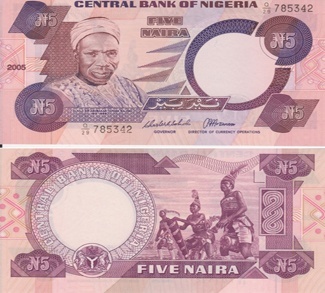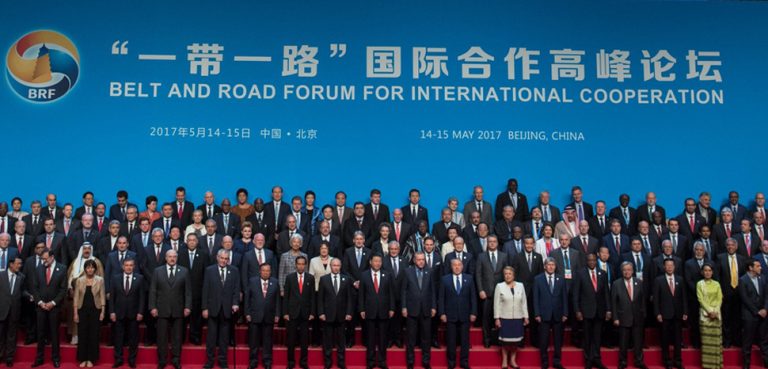By solving a fairly simple math problem, Nigeria has overtaken South Africa to become the largest economy on the African continent – by quite a bit. In early April, the Nigerian government announced plans to recalculate the way that it reports Gross Domestic Product (GDP) – a process known in economic circles as ‘rebasing’.
GDP is typically measured against the performance of an economy in a ‘base’ year. Every time GDP is calculated, sample businesses in certain industries are observed to see how fast they are growing, and the weight of an industry in this calculation depends on its prominence in the economy in the base year. Therefore, most countries ‘rebase’ their GDP calculations every few years because the farther away from the base year you get, the more your economy has changed; certain industries have grown and others have become less important, and so as time goes on GDP data becomes less accurate. Until now, Nigeria has used 1990 as its base year. Things have obviously changed drastically since then, so by rebasing their GDP, the Nigerian government is giving the world a more accurate picture of its economy.
While certain industries have always carried a lot of weight in Nigeria – particularly the oil and gas sector – others have been overlooked in a GDP measurement based on the 1990 Nigerian economy. The telecoms industry has exploded in Nigeria in the last 15 years, currently valued at $19 billion USD, and with the rebasing now constitutes 8.6% of GDP, rather than the 1990 figure of 0.8%. In addition, the Nigerian film industry, known colloquially as ‘Nollywood’, has been acknowledged within the new calculations, whereas until now the growing industry had been largely overlooked.
So what does this mean? For the average Nigerian, almost nothing. The GDP rebasing doesn’t put more money in the bank accounts of individuals or provide new job opportunities. For MNC’s that want to operate in Nigeria, it provides a better snapshot of Nigerian industry and investment risk. For the average Canadian, it means we now know where Nigeria stands in relation to our economy and to the rest of Africa. For the Nigerian economy, it means that Nigeria now has the largest economy in Africa, and that fact has worth on the international stage. In the coming years, it’s unlikely that any pan-African discussions will take place without Nigeria at the head of the table due to their newly-discovered economic clout. Practically overnight, Nigeria’s GDP grew by 89% and as of May 2014 is worth $510 billion (USD). However, despite this whopping statistical increase, in concrete terms nothing has really changed in Nigeria’s economy.
Nevertheless, while Nigeria’s economy continues to operate as it did before the GDP rebasing, there is still some value to this reorientation. The rebased GDP provides a more accurate picture of the Nigerian economy, and confirms what many already knew – that Nigeria is the rising power on the African continent. The country has a population of 170 million, providing a huge consumer base and attracting foreign direct investment.
But Nigeria’s economic ascendance is not matched by political stability. South Africa, now in possession of the second-largest economy in Africa and the informal ‘leader’ of the continent in international discussions and forums, has slowly but surely improved its political reputation since the abolition of apartheid – but it still has its share of issues, past and present, that have not gone overlooked. Nigeria, in contrast, has one of the most corrupt governments in Africa, an increasingly brazen rebel group in the Boko Haram, and internal territorial tensions that are exacerbated by inherent inequalities in the federal system. Despite the new size of Nigeria’s economy, South Africa still has higher average wealth levels and more developed infrastructure.
However, despite the many and varied issues within the Nigerian government and administration, Nigeria has given itself an opportunity with its GDP rebasing. While South Africa undoubtedly ranks higher on many measures of development, their economic growth has not matched Nigeria’s in recent years; the government has become complacent as the internationally accepted leader of Africa; and corruption and class tensions have seeped back into the government and bureaucracy. Nigeria has shown that it has the economic clout to ascend to the top of the African political scene; but political and social reforms have to follow, and quickly, if Nigeria wants to solidify its position as a major power in Africa.
Economically, Nigeria doesn’t have much to worry about; multinational corporations are likely to continue to operate in the country whether the social and political situation improves or not. However, in a diplomatic sense Nigeria will not replace South Africa as the continent’s representative in various global forums, such as the G20. At least, not until it can prove to power-holding western nations that it is more than just an economic powerhouse, but a success story of development as well.




